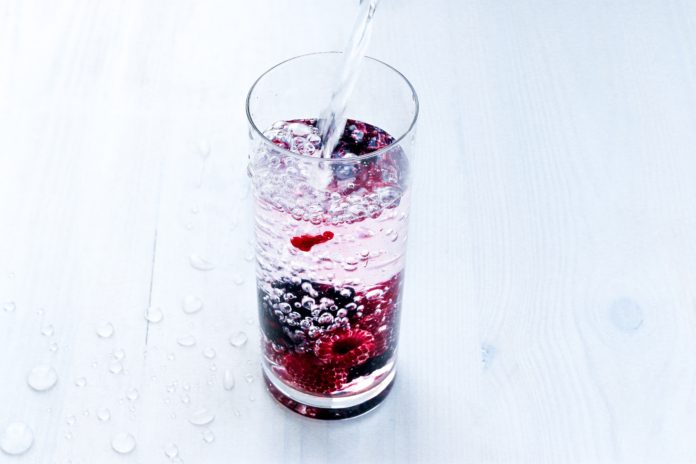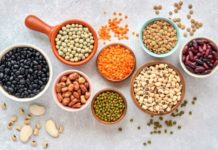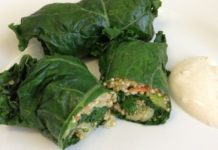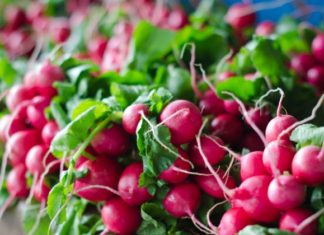It seems that summer is endless with the rampant heat waves found popping up throughout the world. With many countries now affected by the excessive heat, it’s crucial to keep your body from dehydration.
Why is it important to hydrate your body?
I’m sure you heard someone tell you that you should drink at least eight glasses a water a day to stay hydrated. But have you ever thought about why we have to drink so much in a day?
It’s because 60% of your body is made up of water and your internal systems depend on water to function properly. To give you a more detailed answer: when you stay hydrated, all parts of your body such as cells, tissues, and organs use the water to help regulate temperature, remove waste, and lubricate your joints. Drinking water also contributes to a healthier outlook on your skin, helps promote weight loss, and boosts overall mood.
What happens if you’re dehydrated?
Dehydration may lead to a decrease in energy levels, which can cause sleepiness, fatigue, moodiness, and grogginess. Not to mention that you’re more prone to make mistakes because mild dehydration can also affect your ability to think clearly.
In extreme cases, severe or prolonged dehydration will bring devastating effects to your body. These effects may include developing kidney stones, losing the function to sweat, vital internal organs shutting down, fainting, drop in blood pressure, overheating, and even death.
Myths about dehydration

Did you know that the recommendation of drinking at least 8 glasses of water a day is only partly correct? Because the amount of water consumed in a day depends on the person and their circumstances. For example, you may need to consume more than eight glasses to stay hydrated if you’ve worked out or spent a long day in the sun. For other people, fewer than eight glasses are sufficient for staying hydrated, but you should aim for at least 5-6 glasses of water a day.
Another myth is that drinking an enormous amount of water is helping your body stay hydrated. If you’ve ever thought about bringing a two-liter bottle of water and attempted to chug it down in a short amount of time, you may want to reconsider. Generally, it takes about 45 minutes for the body to rehydrate itself, but when you drink excessive amounts of water, you are actually poisoning your body. This is because over-hydration decreases sodium in the blood to dangerously low levels, which can escalate to mild or life-threatening problems.
How can you tell if you’re hydrated, dehydrated, or overhydrated?
It may sound gross but the color of your urine is the most accurate indicator of dehydration. Here’s a breakdown:
When you are hydrated, you’ll notice the following: light yellow (or lemonade) colored urine during your repeated trips to the bathroom, reduced appetite from feeling full, lost weight, and a boost in energy and mood in addition to your normal bodily functions.
When you’re dehydrated, your body’s thirst response will trigger and cause you to feel parched or thirsty. Other noticeable symptoms may include little or no urine or dark (bright yellow or amber) colored urine, dry mouth, headaches, confusion, lightheadedness, and even no production of tears when crying.
When you’re over-hydrated, your urine is colorless. Other symptoms may include confusion, nausea, and vomiting. In extreme cases, untreated over-hydration may result in muscle spasms, seizures, unconsciousness, coma, or death.
So given the facts, it is best to drink water in moderation to avoid over-hydration or dehydration.
What can we eat or drink to stay hydrated?
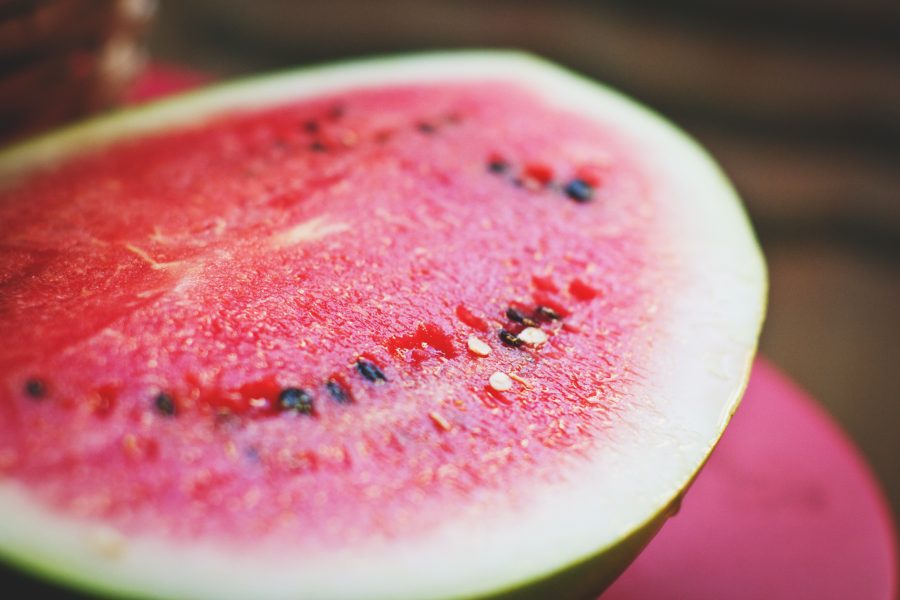
While water is best for staying hydrated, other beverages and foods can contribute to your daily water intake. Yes, even your coffee and tea add to the amount of water you’re consuming in a day— although it might cause you to go to the bathroom frequently. Energy drinks, Jell-O, and even soups are also non-water alternatives to hydrate your body.
Water can also be found in fruits and vegetables but certain types hold more water than others. Here is a list of some fruits and veggies to snack on and keep hydrated:
Fruits
- Strawberries — These sweet and juicy berries have a water content of 91%, which makes it the best hydrating berry. Strawberries are rich in antioxidants, Vitamin C, and fiber.
- Cantaloupes — Cantaloupes have a 90.40% water content and are abundant in vitamins A and C. For an extra boost in hydration, you can puree cantaloupe with orange juice and mint for a summertime soup.
- Grapefruit — With 90.5% water content, grapefruits are superfruits that can lower cholesterol and burn fat due to its compounds. Grapefruits are an excellent source of vitamin A and Vitamin C and can help reduce cravings.
- Watermelon — With the word “water” in its name, it’s no wonder why this fruit is preferred for rehydrating during the hot summer days. With a water content of 91.5%, watermelons are rich in lycopene, a cancer-fighting antioxidant found in red fruits and vegetables. For an extra boost of hydrating power, mix watermelon cubes in a cold pitcher of water.
- Starfruit — This unusual yet intriguing fruit has a water content of 91.4% and is rich in antioxidants including epicatechin (found in red wine, dark chocolate, and green tea) which is good for the heart and muscle growth.
Vegetables
- Cucumbers — Cucumbers have a whopping 96.7% water content, which is the highest out of all the vegetables. Cucumbers are an excellent source of vitamin K (helps blood clot), potassium, manganese, and vitamins C and B1.
- Iceberg Lettuce — This vegetable has a water content of 95.6% and is the ideal vegetable for rehydrating the body. Although it doesn’t contain as many nutrients as darker leafs such as spinach, iceberg lettuces do have vitamin A, Vitamin C, calcium, and iron.
- Radish — Radishes have a 95.3% water content and are rich in antioxidants, including catechin (a disease-fighting antioxidant that’s also found in green tea).
- Celery — With 95.4% water content, celeries are filled with plenty of fiber and water to help boost your hydration. Celeries also contain Folate (good for pregnancy!) and vitamins A, C, and K, which help regulate normal functions.
- Tomato — Tomatoes have a 94.5% water content and is known for their amazing taste. Tomatoes are also abundant in Vitamin E, B6, Folate, and Vitamins A, C, and K.


